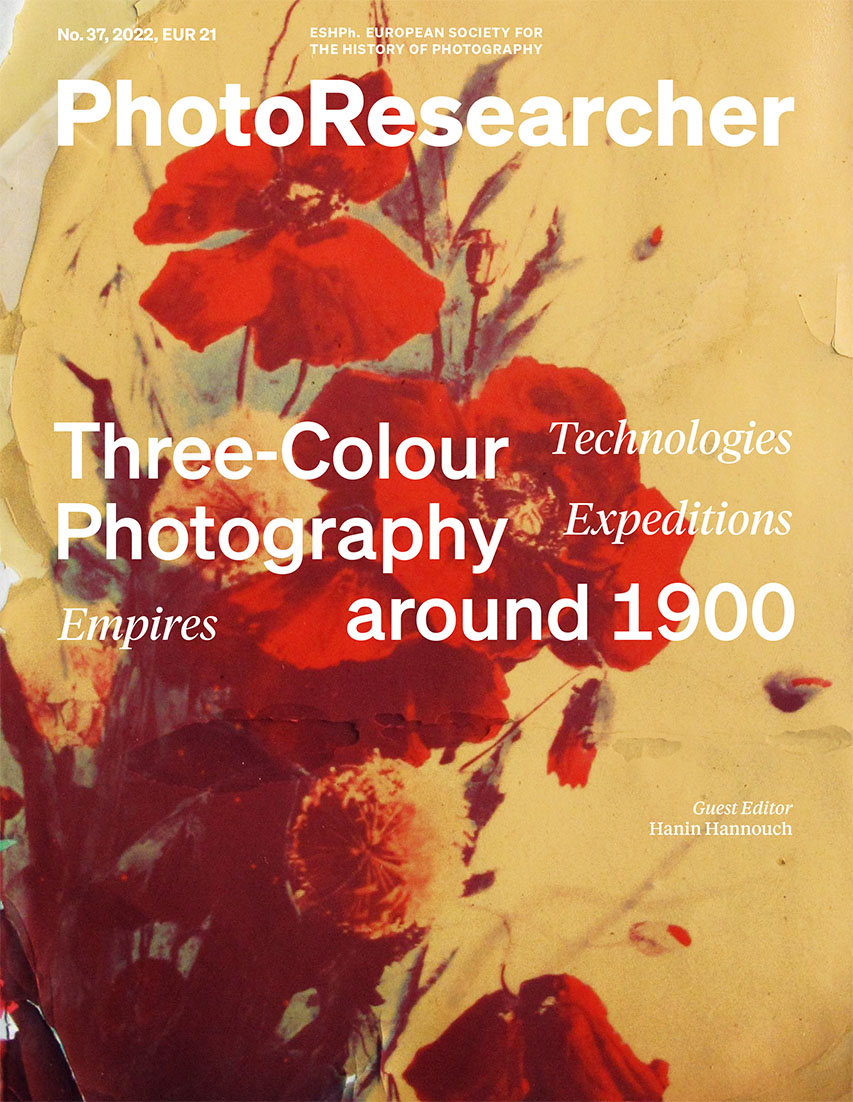Three-Colour Photography around 1900

Three-color photography is the basis for most color photographic technologies nowadays, so why does its multifaceted history remain ignored by historians? This issue of PhotoResearcher explores the various technologies the term “three-color photography” encompasses, investigates their use in different expeditions abroad, and elucidates their role in the visual and discursive constructions of Empire. Thus, it offers readers interpretative and methodological paradigms to complicate three-color photography’s historiographic position.
Editors
Ulla Fischer-Westhauser, Uwe Schögl
Guest Editor
Hanin Hannouch / Weltmuseum Wien, Vienna
Content
Janine Freeston
Agnes Warburg’s Determination:
Mastering the Three-Colour Print
Geoffrey Barker
Frank Hurley and the Paget Process:
Colour Photography from the Mawson and Shackleton Antarctic Expeditions 1911–1917
Rachel Wetzel
Instinctive Genius:
Frederic Eugene Ives & The Krōmscōp Color Photography System
Hanin Hannouch
Gustav Fritsch around 1900:
Anthropology and Three-Colour Photography in Imperial Germany
Inga Lára Baldvinsdóttir
Leprosy in Iceland.
Karl Grossmann’s Sanger-Shepherd Colour Photographs
Dominika Sulińska
Astute Inventions:
Jan Szczepanik’s Colour Textile, Photography and Film
Rolf Sachsse
Why in Color?
Sergei Mikhailovich Prokudin-Gorskiĭ and His Travels 1908–1918
Nils Torske in Conversation with Hanin Hannouch
A Chemist, Not a Photographer:
Harald Renbjør’s Three-Color Photography
Order the PhotoResearcher Journal or single articles as a PDF